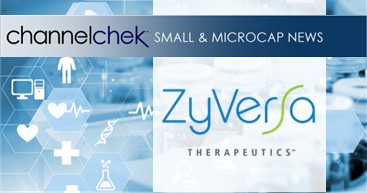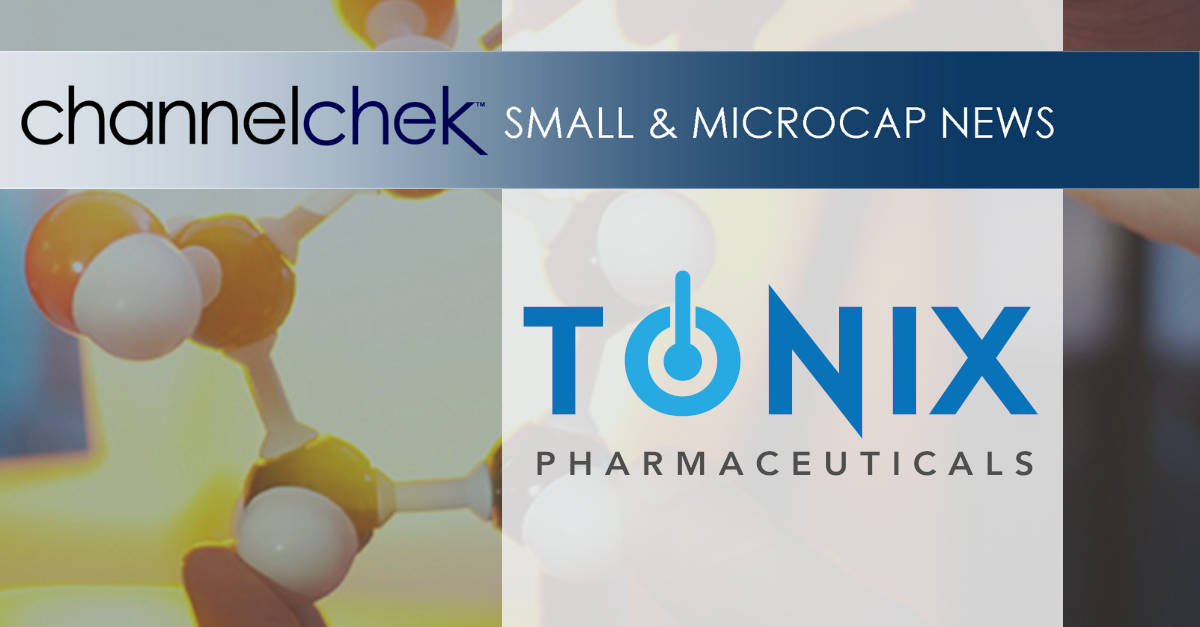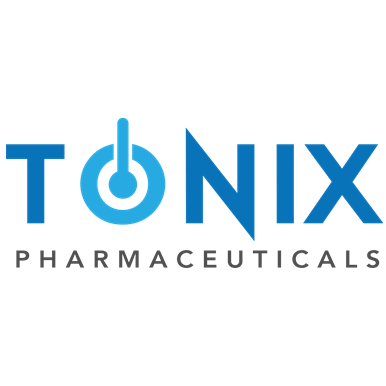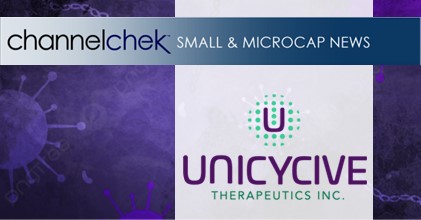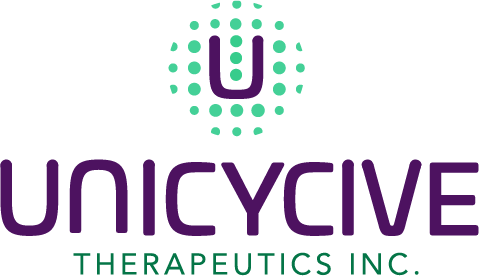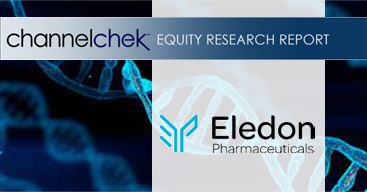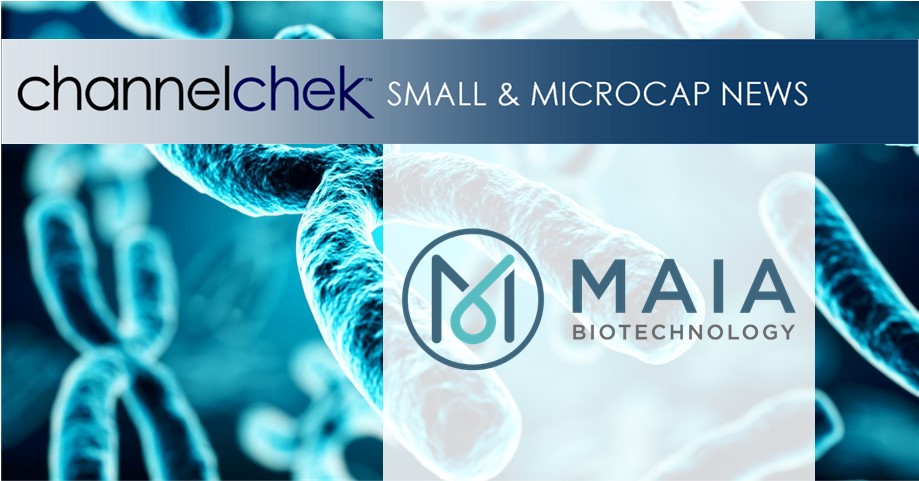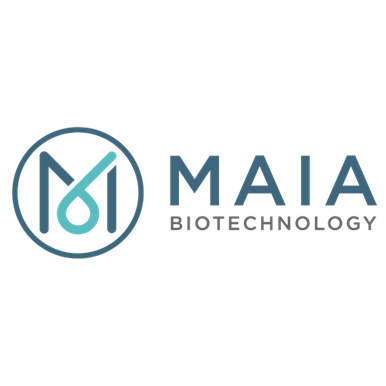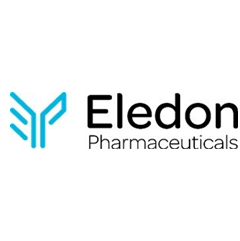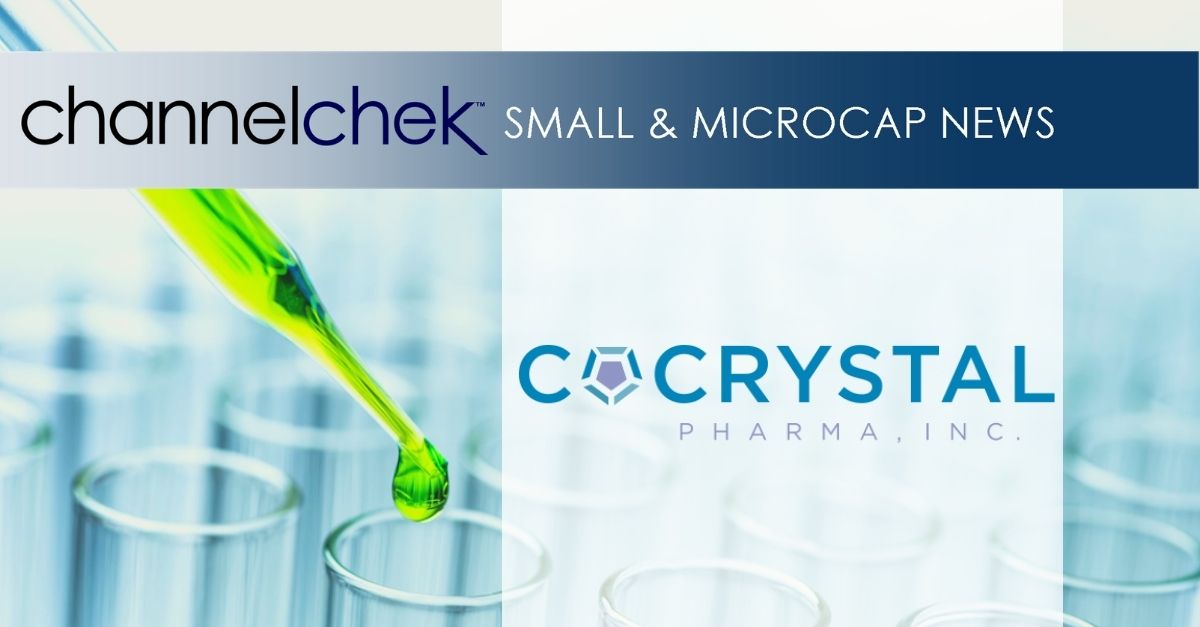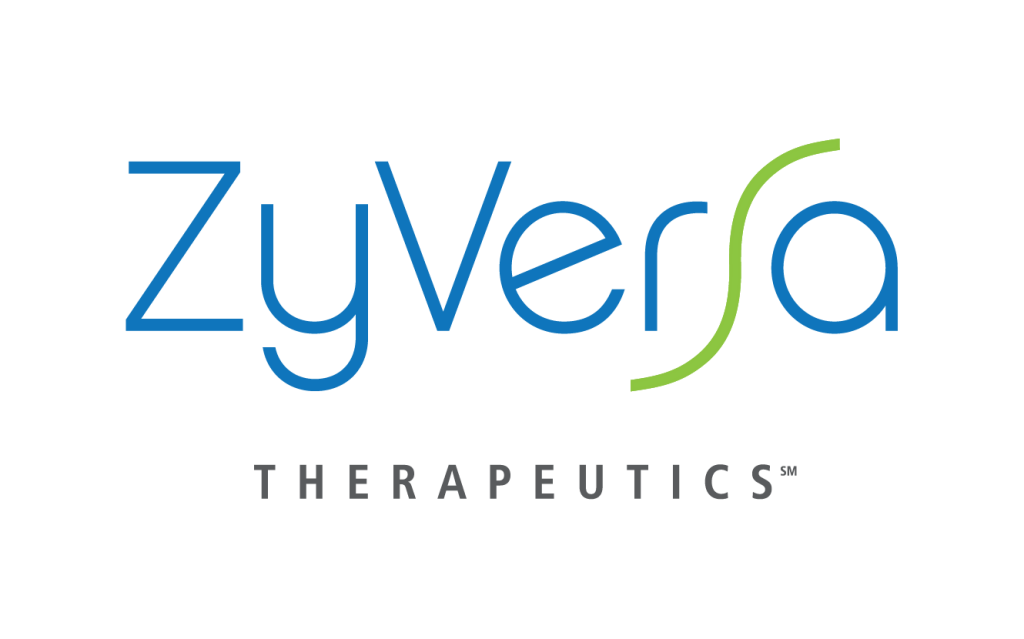
Research News and Market Data on ZVSA
Mar 25, 2024
Key Highlights:
- Cholesterol Efflux MediatorTM VAR 200 on target to begin Phase 2a clinical trial in patients with diabetic kidney disease H1-2024.
- Inflammasome ASC Inhibitor IC 100 preclinical program nearing completion, with planned Investigational New Drug (IND) submission Q4-2024, and Phase 1 clinical trial initiation shortly thereafter.
- Inflammasome ASC Inhibitor IC 100 preclinical research funded by The Michael J. Fox Foundation for Parkinson’s Research (MJFF) nearing completion, with potential for a second MJFF grant for further research.
- Scientific collaboration to assess Inflammasome ASC Inhibitor IC 100 as a potential treatment for atherosclerosis expected to conclude H1-2024.
- Scientific collaboration to assess Inflammasome ASC Inhibitor IC 100 as a potential treatment for obesity and metabolic syndrome expected to begin Q2-2024.
WESTON, Fla., March 25, 2024 (GLOBE NEWSWIRE) — ZyVersa Therapeutics, Inc. (Nasdaq: ZVSA, or “ZyVersa”), a clinical-stage specialty biopharmaceutical company developing first-in-class drugs for the treatment of renal and inflammatory diseases with high unmet medical needs, reports financial results for full year ending December 31, 2023, and provides business update.
“Throughout 2023 and early 2024, ZyVersa achieved considerable progress in advancing development of our two lead candidates. A Phase 2a clinical trial with Cholesterol Efflux MediatorTM VAR 200 is on target to be initiated in the first half of this year in patients with diabetic kidney disease; preclinical studies for indication expansion are underway for Parkinson’s disease, atherosclerosis, and obesity with Inflammasome ASC Inhibitor IC 100; and IND submission for IC 100 is expected by end of the year,” stated Stephen C. Glover, ZyVersa’s Co-founder, Chairman, CEO, and President. “We view 2024 as a potentially transformative year for the company based on the value-building milestones that we expect to achieve over the next 12 to 15 months. I look forward to working with my leadership team and fellow Board members to execute a business and clinical strategy that has potential to position ZyVersa as a leading, innovative company developing transformative drugs for underserved patients with renal and inflammasome-mediated inflammatory diseases.”
BUSINESS Update
CHOLESTEROL EFFLUX MEDIATORTM VAR 200 FOR RENAL DISEASE
- Phase 2a clinical trial in patients with diabetic kidney disease is on target to begin in the first half of 2024.
- CRO, George Clinical was engaged in December 2023 to initiate and manage the trial.
- An IND amendment to study diabetic kidney disease was filed on February 16, 2024.
- A central Institutional Review Board (IRB) approved the clinical trial protocol for trial initiation.
INFLAMMASOME ASC INHIBITOR IC 100 FOR INFLAMMATORY DISEASES
- Inflammasome ASC Inhibitor IC 100’s preclinical program is nearing completion, with a planned IND submission in Q4-2024, followed by initiation of a Phase 1 clinical trial shortly thereafter.
- Preclinical research funded by MJFF and conducted by researchers at University of Miami Miller School of Medicine to determine the potential of Inflammasome ASC Inhibitor IC 100 to block the damaging neuroinflammation that induces neural degeneration in Parkinson’s disease is nearing completion.
- Research update and key findings were provided to MJFF project team on March 8, 2024.
- Based on the findings, the MJFF project team suggested that the team apply for a second grant to further the research in an established animal model.
- A scientific collaboration was initiated with an undisclosed partner to assess the potential of Inflammasome ASC Inhibitor IC 100 as a treatment for atherosclerosis in a well-established animal model.
- Study is expected to conclude in H1-2024.
- A scientific collaboration with inflammasome and neurology experts at University of Miami Miller School of Medicine to assess the potential of Inflammasome ASC Inhibitor IC 100 as a treatment for obesity and metabolic syndrome is expected to begin in Q2-2024.
YEAR END 2023 FINANCIAL RESULTS
Net losses were $98.3 million for the year ended December 31, 2023 (the “2023 Period”), an increase of $84.2 million compared to a net loss of $14.1 million for the “2022 Period,” which is comprised of the financial results of the company containing our operations prior to our business combination from January 1, 2022 through December 12, 2022, and our financial results after the business combination, from December 13, 2022 through December 31, 2022. A deferred tax benefit of $9.5 million for the 2023 Period, compared to $0.7 million tax benefit during the 2022 Period, resulted from the impairment of the in-process research and development.
Pre-tax losses were $107.8 million for the 2023 Period, an increase of $92.9 million compared to a pre-tax loss of $14.9 million for the 2022 Period. The higher net loss reported for the 2023 Period is primarily due to the impairment of in-process research and development and impairment of goodwill of $81.4 million and $11.9 million, respectively, compared to none for the 2022 Period. The impairment is a result of the decline in stock value and the resulting market capitalization of ZyVersa during the 2023 Period.
Based on its current operating plan, ZyVersa expects its cash of $3.1 million as of December 31, 2023 will be sufficient to fund its operating expenses and capital expenditure requirements on a month-to-month basis. ZyVersa will need additional financing to support its continuing operations. ZyVersa will seek to fund its operations through public or private equity or debt financings or other sources, which may include government grants and collaborations with third parties.
Research and development expenses for the 2023 Period were $3.2 million, a decrease of $2.6 million or 44.8% from $5.8 million for the 2022 Period. The decrease in research and development expenses was primarily due to spending for materials supplies for manufacturing in 2022 that were not required in 2023 as manufacturing was completed in 2022.
General and administrative expenses for the 2023 Period were $11.2 million, an increase of $3.2 million or 39.7% from $8.0 million for the 2022 Period. The increase is primarily attributed to increased costs for legal and professional fees of $2.7 million, investor and public relations fees of $1.2 million, and increased director and officer insurance of $1.3 million, all due to increased costs associated with being a public company. These were offset by reduced business combination transaction costs of $2.2 million.
About ZyVersa Therapeutics, Inc.
ZyVersa (Nasdaq: ZVSA) is a clinical stage specialty biopharmaceutical company leveraging advanced, proprietary technologies to develop first-in-class drugs for patients with renal and inflammatory diseases who have significant unmet medical needs. The Company is currently advancing a therapeutic development pipeline with multiple programs built around its two proprietary technologies – Cholesterol Efflux Mediator™ VAR 200 for treatment of kidney diseases, and Inflammasome ASC Inhibitor IC 100, targeting damaging inflammation associated with numerous CNS and peripheral inflammatory diseases. For more information, please visit www.zyversa.com.
Cautionary Statement Regarding Forward-Looking Statements
Certain statements contained in this press release regarding matters that are not historical facts, are forward-looking statements within the meaning of Section 21E of the Securities Exchange Act of 1934, as amended, and the Private Securities Litigation Reform Act of 1995. These include statements regarding management’s intentions, plans, beliefs, expectations, or forecasts for the future, and, therefore, you are cautioned not to place undue reliance on them. No forward-looking statement can be guaranteed, and actual results may differ materially from those projected. ZyVersa Therapeutics, Inc. (“ZyVersa”) uses words such as “anticipates,” “believes,” “plans,” “expects,” “projects,” “future,” “intends,” “may,” “will,” “should,” “could,” “estimates,” “predicts,” “potential,” “continue,” “guidance,” and similar expressions to identify these forward-looking statements that are intended to be covered by the safe-harbor provisions. Such forward-looking statements are based on ZyVersa’s expectations and involve risks and uncertainties; consequently, actual results may differ materially from those expressed or implied in the statements due to a number of factors, including ZyVersa’s plans to develop and commercialize its product candidates, the timing of initiation of ZyVersa’s planned preclinical and clinical trials; the timing of the availability of data from ZyVersa’s preclinical and clinical trials; the timing of any planned investigational new drug application or new drug application; ZyVersa’s plans to research, develop, and commercialize its current and future product candidates; the clinical utility, potential benefits and market acceptance of ZyVersa’s product candidates; ZyVersa’s commercialization, marketing and manufacturing capabilities and strategy; ZyVersa’s ability to protect its intellectual property position; and ZyVersa’s estimates regarding future revenue, expenses, capital requirements and need for additional financing.
New factors emerge from time-to-time, and it is not possible for ZyVersa to predict all such factors, nor can ZyVersa assess the impact of each such factor on the business or the extent to which any factor, or combination of factors, may cause actual results to differ materially from those contained in any forward-looking statements. Forward-looking statements included in this press release are based on information available to ZyVersa as of the date of this press release. ZyVersa disclaims any obligation to update such forward-looking statements to reflect events or circumstances after the date of this press release, except as required by applicable law.
This press release does not constitute an offer to sell, or the solicitation of an offer to buy, any securities.
Corporate, Media, IR Contact
Karen Cashmere
Chief Commercial Officer
kcashmere@zyversa.com
786-251-9641
| ZYVERSA THERAPEUTICS, INC. | |||||||||||
| CONSOLIDATED BALANCE SHEETS | |||||||||||
| Successor | |||||||||||
| December 31, | |||||||||||
| 2023 | 2022 | ||||||||||
| Assets | |||||||||||
| Current Assets: | |||||||||||
| Cash | $ | 3,137,674 | $ | 5,902,199 | |||||||
| Prepaid expenses and other current assets | 215,459 | 225,347 | |||||||||
| Vendor deposits | – | 235,000 | |||||||||
| Total Current Assets | 3,353,133 | 6,362,546 | |||||||||
| Equipment, net | 6,933 | 17,333 | |||||||||
| In-process research and development | 18,647,903 | 100,086,329 | |||||||||
| Goodwill | – | 11,895,033 | |||||||||
| Security deposit | 98,476 | 46,659 | |||||||||
| Operating lease right-of-use asset | 7,839 | 98,371 | |||||||||
| Total Assets | $ | 22,114,284 | $ | 118,506,271 | |||||||
| Liabilities, Temporary Equity and Stockholders’ Equity | |||||||||||
| Current Liabilities: | |||||||||||
| Accounts payable | $ | 8,431,583 | $ | 6,025,645 | |||||||
| Accrued expenses and other current liabilities | 1,754,533 | 2,053,559 | |||||||||
| Operating lease liability | 8,656 | 108,756 | |||||||||
| Total Current Liabilities | 10,194,772 | 8,187,960 | |||||||||
| Deferred tax liability | 844,914 | 10,323,983 | |||||||||
| Total Liabilities | 11,039,686 | 18,511,943 | |||||||||
| Commitments and contingencies | |||||||||||
| Redeemable common stock, subject to possible redemption, | |||||||||||
| 0 and 1,880 shares outstanding as of December 31, 2023 and | |||||||||||
| 2022, respectively | – | 331,331 | |||||||||
| Stockholders’ Equity: | |||||||||||
| Preferred stock, $0.0001 par value, 1,000,000 shares authorized: | |||||||||||
| Series A preferred stock, 8,635 shares designated, 50 and 8,635 shares issued | |||||||||||
| and outstanding as of December 31, 2023 and 2022, respectively | – | 1 | |||||||||
| Series B preferred stock, 5,062 shares designated, 5,062 shares issued | |||||||||||
| and outstanding as of December 31, 2023 and 2022, respectively | 1 | 1 | |||||||||
| Common stock, $0.0001 par value, 250,000,000 shares authorized; | |||||||||||
| 4,052,119 and 257,604 shares issued at December 31, 2023 and 2022, | |||||||||||
| respectively, and 4,052,057 and 257,604 shares outstanding as of | |||||||||||
| December 31, 2023 and 2022, respectively | 405 | 26 | |||||||||
| Additional paid-in-capital | 114,300,484 | 104,584,147 | |||||||||
| Accumulated deficit | (103,219,124 | ) | (4,921,178 | ) | |||||||
| Treasury stock, at cost, 62 and 0 shares at December 31, 2023 | |||||||||||
| and 2022, respectively | (7,168 | ) | – | ||||||||
| Total Stockholders’ Equity | 11,074,598 | 99,662,997 | |||||||||
| Total Liabilities, Temporary Equity and Stockholders’ Equity | $ | 22,114,284 | $ | 118,506,271 | |||||||
| ZYVERSA THERAPEUTICS, INC. | |||||||||||||||
| CONSOLIDATED STATEMENTS OF OPERATIONS | |||||||||||||||
| Successor | Predecessor | ||||||||||||||
| For the | For the period | For the period | |||||||||||||
| Year Ended | December 13 through | January 1 through | |||||||||||||
| December 31, | December 31, | December 12, | |||||||||||||
| 2023 | 2022 | 2022 | |||||||||||||
| Operating Expenses: | |||||||||||||||
| Research and development | $ | 3,207,573 | $ | 399,894 | $ | 5,407,859 | |||||||||
| General and administrative | 11,213,201 | 420,174 | 7,605,205 | ||||||||||||
| Impairment of in-process research and development | 81,438,426 | – | – | ||||||||||||
| Impairment of goodwill | 11,895,033 | – | – | ||||||||||||
| Total Operating Expenses | 107,754,233 | 820,068 | 13,013,064 | ||||||||||||
| Loss From Operations | (107,754,233 | ) | (820,068 | ) | (13,013,064 | ) | |||||||||
| Other (Income) Expense: | |||||||||||||||
| Interest (income) expense | (457 | ) | – | 427,542 | |||||||||||
| Change in fair value of derivative liabilities | – | – | 607,001 | ||||||||||||
| Pre-Tax Net Loss | (107,753,776 | ) | (820,068 | ) | (14,047,607 | ) | |||||||||
| Income tax benefit | 9,455,830 | 745,050 | – | ||||||||||||
| Net Loss | (98,297,946 | ) | (75,018 | ) | (14,047,607 | ) | |||||||||
| Deemed dividend to preferred stockholders | (7,948,209 | ) | – | (10,015,837 | ) | ||||||||||
| Net Loss Attributable to Common Stockholders | $ | (106,246,155 | ) | $ | (75,018 | ) | $ | (24,063,444 | ) | ||||||
| Net Loss Per Share | |||||||||||||||
| – Basic and Diluted | $ | (108.97 | ) | $ | (0.29 | ) | $ | (0.99 | ) | ||||||
| Weighted Average Number of | |||||||||||||||
| Common Shares Outstanding | |||||||||||||||
| – Basic and Diluted | 975,035 | 257,604 | 24,194,270 | ||||||||||||
